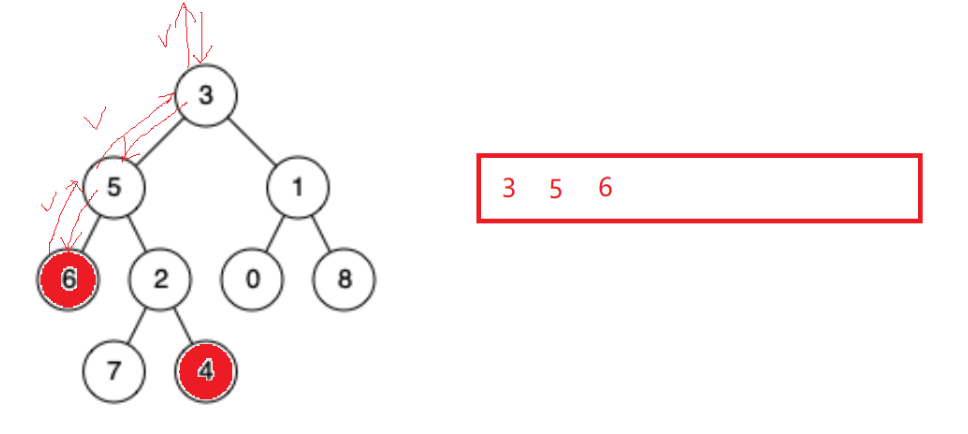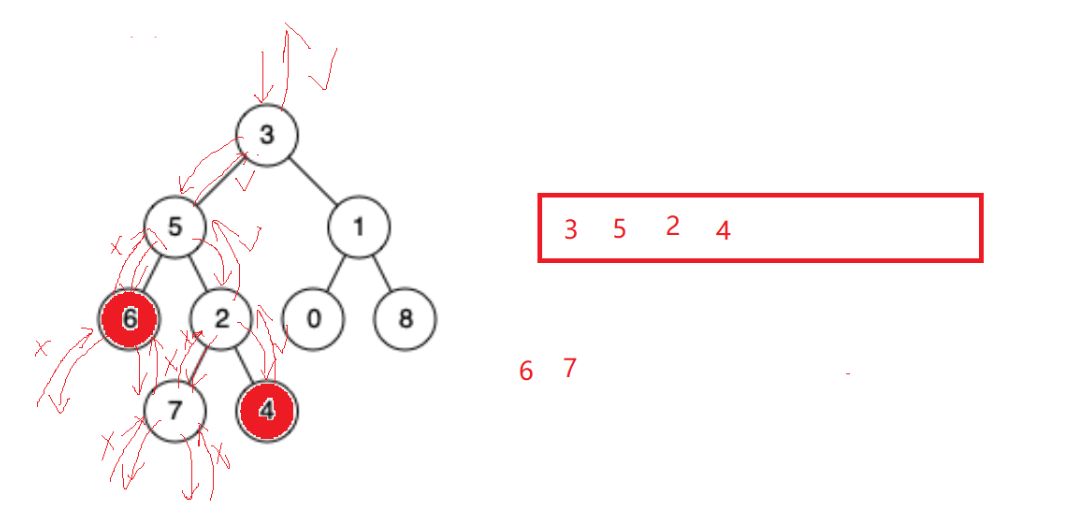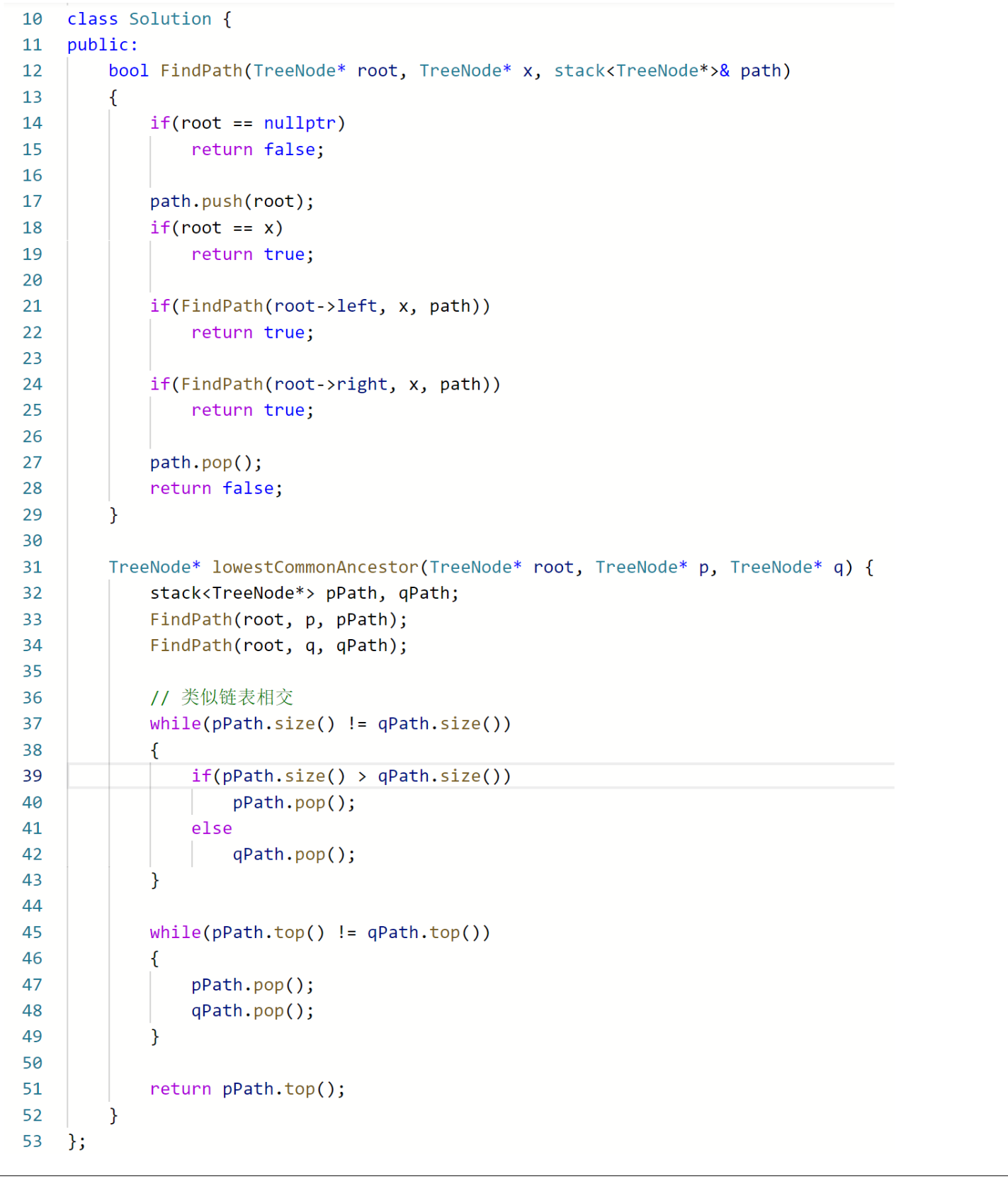236. 二叉树的最近公共祖先

解法1
规则:
一个是左子树中的节点,一个是右子树中的节点,那么他就是最近的公共祖先
这种做法的时间复杂度是O(H*N),如果公共祖先在很下面,时间复杂度就比较高
每次找高度次
1
2
3
4
5
6
7
8
9
10
11
12
13
14
15
16
17
18
19
20
21
22
23
24
25
26
27
28
29
30
31
32
33
34
35
36
37
38
39
40
41
42
43
44
45
46
47
48
49
50
51
52
53
54
| class Solution {
public:
bool Find(TreeNode* root, TreeNode* x)
{
if(root==nullptr)
return false;
retur root==x||Find(root->left,x)||Find(root->right,x);
}
TreeNode* lowestCommonAncestor(TreeNode* root, TreeNode* p, TreeNode* q) {
if(root==nullptr)
{
return nullptr;
}
if(root==p||root==q)
return root;
bool pInLeft,pInRight,qInLeft,qInRight;
pInLeft=Find(root->left, p);
pInRight=!pInLeft;
qInLeft=Find(root->left, q);
qInRight=!qInLeft;
if((pInLeft&&qInRight)||(pInRight&&qInLeft))
{
return root;
}
else if(pInLeft&&qInLeft)
{
return lowestCommonAncestor(root->left, p, q);
}
else if(pInRight&&qInRight)
{
return lowestCommonAncestor(root->right, p, q);
}
else
{
return nullptr;
}
}
};pp
|
解法2
用栈记录路径,时间复杂度为O(N)
找6的路径

找4的路径


我自己写的
1
2
3
4
5
6
7
8
9
10
11
12
13
14
15
16
17
18
19
20
21
22
23
24
25
26
27
28
29
30
31
32
33
34
35
36
37
38
39
40
41
42
43
44
45
46
47
48
49
50
51
52
53
54
55
56
57
58
59
60
61
62
63
64
65
66
67
68
69
70
71
72
73
74
| class Solution {
public:
bool find(TreeNode* root, TreeNode* x, stack<TreeNode*>& s)
{
if(root==nullptr)
{
return false;
}
s.push(root);
if(root==x)
{
return true;
}
if(find(root->left, x, s))
{
return true;
}
if(find(root->right, x ,s))
{
return true;
}
s.pop();
return false;
}
TreeNode* lowestCommonAncestor(TreeNode* root, TreeNode* p, TreeNode* q) {
stack<TreeNode*>s1;
stack<TreeNode*>s2;
find(root,p, s1);
find(root,q, s2);
while(!s1.empty()&&!s2.empty())
{
if(s1.top()==s2.top())
{
return s2.top();
}
if(s1.size()==s2.size())
{
s1.pop();
s2.pop();
}
else if(s1.size()>s2.size())
{
s1.pop();
}
else
{
s2.pop();
}
}
return nullptr;
}
};
|







